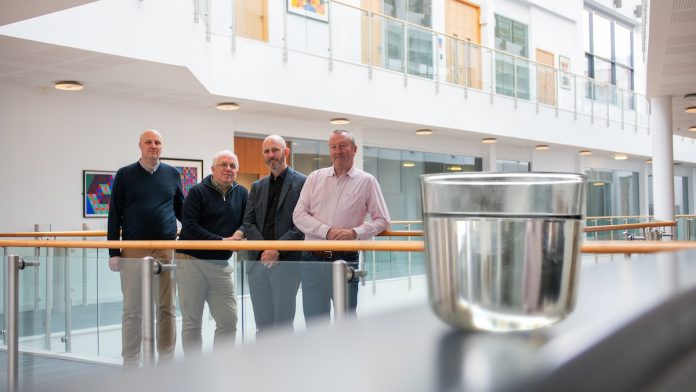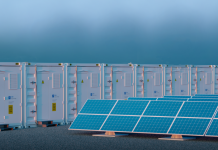Looming water scarcity threat could limit the UK’s ability to reach 2050 net zero targets, according to the latest research.
The report, commissioned by national water retailer Wave in collaboration with Durham University, revealed that the water required for decarbonisation projects will likely push some UK regions into a deficit as early as 2030.
High-water requirements for blue and green hydrogen production and CO2 capture mean that, for non-household water users in the industrial and energy sectors, water scarcity poses a significant risk to both business growth and future decarbonisation efforts, according to the landmark report.
The research analysed decarbonisation activities across England’s five largest industrial clusters – Humberside, North West England, Tees Valley, the Solent, and the Black Country – to assess how much water will be needed to reach net zero by 2050, and whether the UK’s future water supply can meet this demand. It uncovered several key findings, including:
- By 2040, additional water requirements needed for decarbonisation in England are likely to be equally split between CO2 capture, blue hydrogen production, and green hydrogen, placing an additional demand for 860 million litres of water per day across the UK by 2050.
- Decarbonisation within the Humberside industrial cluster is likely to push the East Anglian region, supplied by Anglian Water into water deficit by 2030, leading to a total deficit of 130 million litres of water per day by 2050.
- A water shortfall linked to the Humberside industrial cluster, is predicted in the Yorkshire Water region; however, under current decarbonisation plans, it is expected to be less severe due to existing water management.
- The North West industrial cluster is projected to generate a water deficit of around 70 million litres of water per day by 2030, but planned strategies by United Utilities are expected to create a surplus by 2045.
- Planned activities associated with the Teesside and Black Country industrial clusters are unlikely to push Northumbrian Water and Severn Trent regions into a water shortfall due to both water companies planning significant water surpluses by 2050.
With large quantities of water required for decarbonisation projects and the UK predicted to face a shortfall of nearly five billion litres of water per day by 2055, according to the Environment Agency, the water industry is doubling down on a call for collaboration and innovation to ensure projects don’t dry up before they begin.
Simon Mathias, Professor at Durham University, said, “Our analysis shows that decarbonisation efforts, associated with carbon capture and hydrogen production, could add up to 860 million litres per day of water demand by 2050. In some regions, for example Anglian Water and United Utilities, deficits could emerge as early as 2030 unless proactive measures are taken.
“To ensure sustainable resource use, it’s vital that decarbonisation project managers work closely with water companies. Exploring innovative ways to reduce the water demand of decarbonisation technologies must be a priority. Regional desalination hubs and adaptive water management strategies should also be part of the conversation.”
Nigel Corfield, Industrial and Commercial Customer Director at Wave, said, “Water is a resource that’s often taken for granted. We just expect it to be there. When it comes to some large-scale industrial decarbonisation projects, the availability of water may be the deciding factor in whether these projects can move forward or not.
“This report brings to light the stark truth: if we continue to use water the way we do now, there simply won’t be enough. We want water scarcity to be seen as a shared challenge.
“Water retailers, wholesalers, net zero project managers, and government need to work together from the outset, aligning plans and timelines with local water resources to minimise disruption. Without urgent action, the road to net zero could quite literally dry up.”
With this report, Wave is calling for collaboration and innovation across the supply chain – from small businesses to heavy industry, water companies, and government bodies. It sets out recommendations to drive meaningful, long-term change.
The report’s recommendations for tackling deficits
The report backs up Wave’s long-term stance that decarbonisation project managers should engage with water companies at the planning stage to align decarbonisation project timelines with local water resource availability. This proactive approach will help to achieve better coordination and planning.
Given the high-water requirements for blue and green hydrogen production and CO2 capture, the report recommends that decarbonisation project managers explore technologies to lower specific water intensity factor values, including water recycling options, improved cooling systems, and advanced water treatment.
Decarbonisation project managers and regional water companies should also consider pooling resources to establish regional water hubs. By sharing infrastructure, projects can collectively reduce freshwater demand while alleviating pressure on local freshwater sources and benefiting from a more cost-effective and reliable supply.
Collaboration is vital and in areas facing scarcity, water companies should consider redistributing water resources from regions with projected surpluses to balance the water needs across the nation.
Finally, to ensure resilience when faced with unexpected increases in demand, water companies should also establish ongoing monitoring and adaptive management strategies to regularly update water demand forecasts based on real-time developments in decarbonisation projects.
To read the report in full, please click here.




